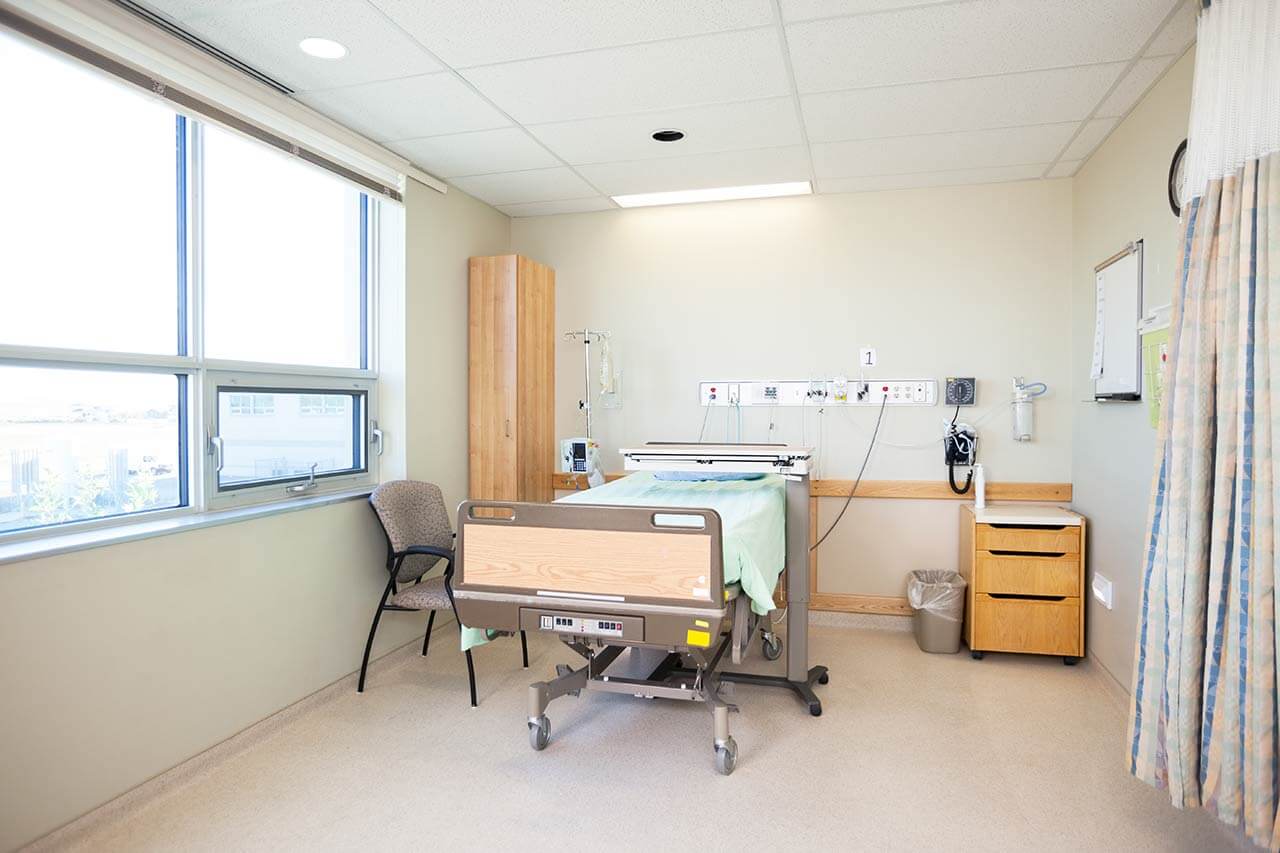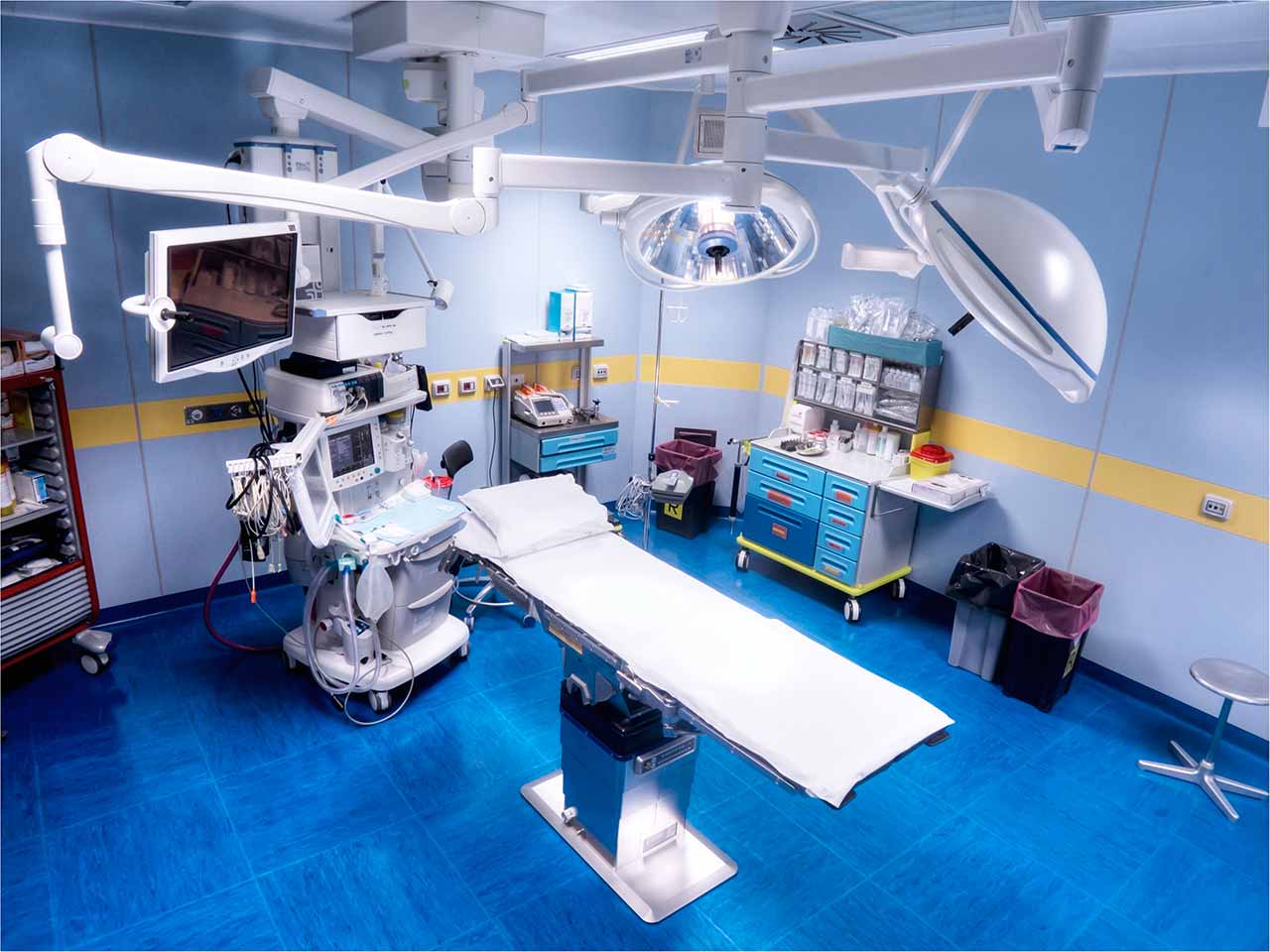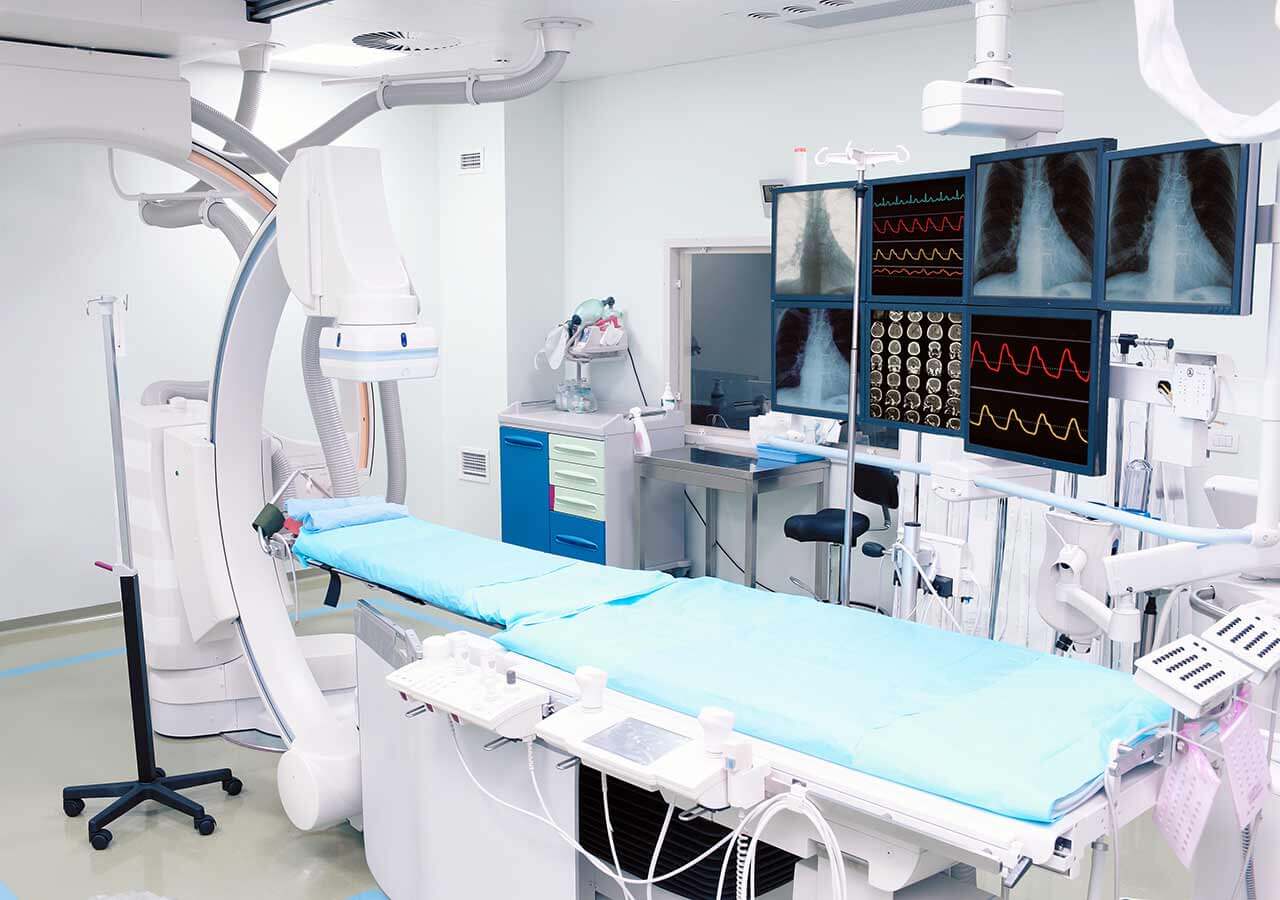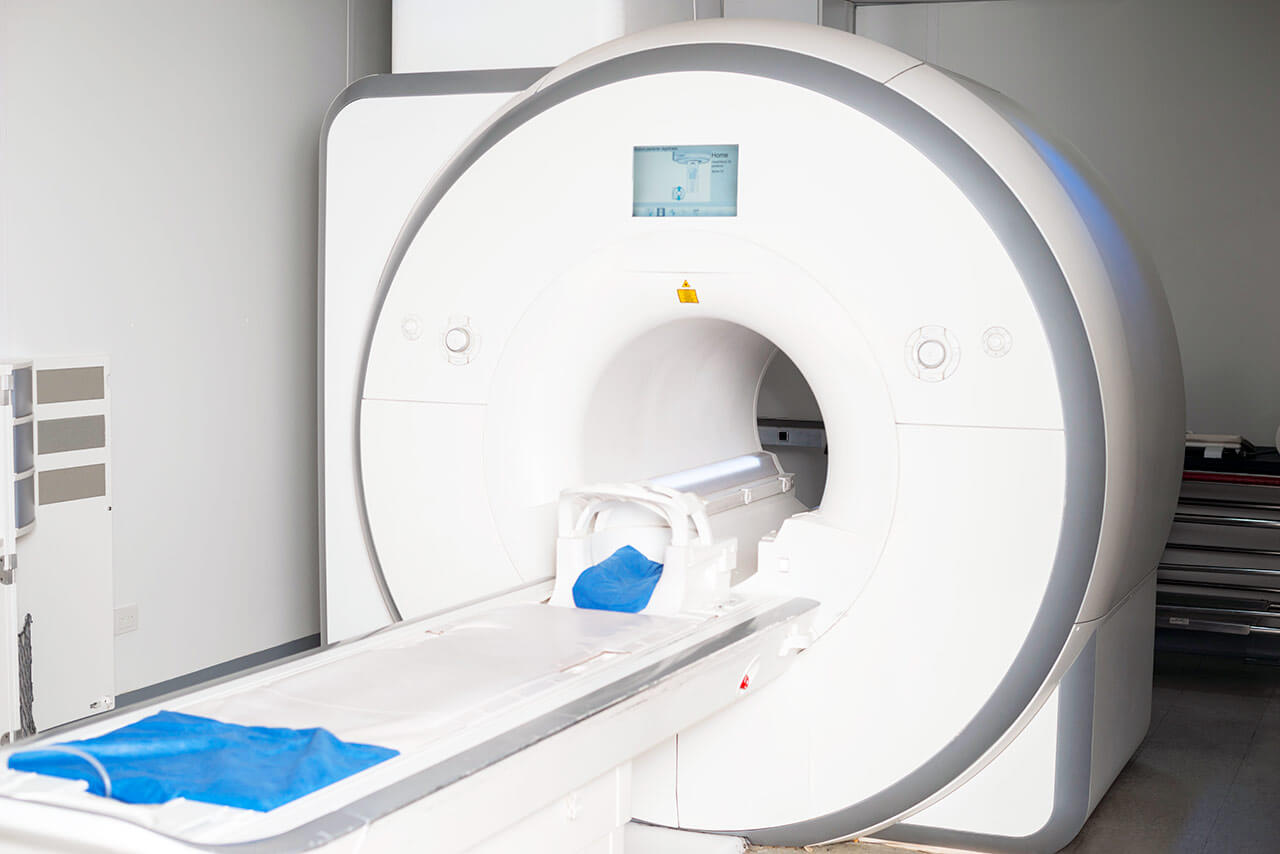
The program includes:
- Initial presentation in the clinic
- clinical history taking
- review of medical records
- physical examination
- laboratory tests:
- complete blood count
- general urine analysis
- biochemical analysis of blood
- inflammation indicators (CRP, ESR)
- indicators blood coagulation
- neurological examination
- functionality x-ray
- CT/MRI scan
- neuropsychological tests (on indications):
- ENMG (electroneuromyography)
- SEPs (somatosensory evoked potentials)
- postoperative control
- tumor resection under neuronavigation
- histologically and immunohistochemically
examination of the remote tissues - postoperative control
- symptomatic treatment
- control examinations
- the cost of essential medicines and materials
- nursing services
- full hospital accommodation
- developing of further guidance by specialists
in oncology and radiotherapy
Required documents
- Medical records
- MRI/CT scan (if available)
Service
You may also book:
 BookingHealth Price from:
BookingHealth Price from:
About the department
According to the Focus magazine, the Department of Adult and Pediatric Orthopedics, Trauma Surgery, Spinal Surgery, Foot Surgery and Hand Surgery at the St. Anna Hospital Herne ranks among the top German medical facilities specializing in the surgical treatment of spinal and hip joint diseases!
The department carries out high-precision diagnostics and comprehensive treatment of the full range of musculoskeletal diseases. The department admits patients of middle and elderly age, as well as children of all age groups. The department's medical team consists of 60 employees and specializes in the conservative and surgical treatment of diseases and injuries of the spine, knee, hip, elbow, shoulder joints, foot and hand pathologies. More than 25,000 inpatients and about 30,000 outpatients undergo treatment here every year. The department is the largest and the best highly specialized medical facility of this kind in the country, which is confirmed by certificates from the German Spine Society, the German Society for Trauma Surgery and the German Society for Orthopedics and Orthopedic Surgery. The department is headed by PD Dr. med. Sebastian Rütten.
The primary focus of the medical facility is the surgical treatment of spinal diseases and injuries, as well as pain management for chronic back pain. First of all, the department's specialists consider conservative treatments, as well as interventional procedures, while surgery is the last-line therapy. The department's doctors have vast clinical experience – about 15,000 interventional procedures are performed here annually for the treatment of chronic back pain and more than 3,000 surgical interventions on the spine. Medical services are provided for both adults and children. The doctors of this specialization most often deal with spinal disc herniation, spinal stenosis, spinal instability, spondylolisthesis, myelopathies, scoliosis, pathological kyphosis, spinal fractures, spondylodiscitis, rheumatic spinal lesions and other pathologies. Spinal surgeons have a perfect command of all modern techniques, including endoscopic, microsurgical, minimally invasive and open techniques. In addition, the department performs stabilizing and reconstructive spinal surgeries. The operation is quite often complemented by conservative treatment methods: intake of painkillers and anti-inflammatory drugs, naturopathy methods, acupuncture, therapeutic exercises, physiotherapy procedures, etc.
The department also offers services for knee and hip replacement surgery – it is certified in accordance with the requirements of the German Society for Orthopedics and Orthopedic Surgery. Partial and total joint replacement surgery with an endoprosthesis are performed using minimally invasive techniques, which helps to relieve postoperative pain syndrome and to quickly recover the patient. In most cases, surgeons use special navigation systems to position the artificial joint with millimeter precision. Prior to the surgical intervention, a prosthesis is individually selected for the patient. Whenever required, a customized prosthesis can be implanted to the patient.
The department is distinguished by its special competence in the treatment of Perthes disease. Pathology is associated with an impairment of the blood supply to the femoral head and without timely treatment may lead to irreversible deformation of the hip joint. An X-ray scan is a must at the stage of treatment planning. Depending on the particular clinical indications, conservative treatment can be carried out up to the age of 4 years. However, children under 4 years with Perthes disease (Catterall grade III and IV) often require surgery. When a child with grade III or IV according to the Catterall classification reaches the age of 7 years, even surgery does not always give the desired result. Conservative methods involve the wearing of orthoses, plaster casts, splints and other devices. The surgical treatment of Perthes disease in the department is based on 3D hip osteotomy.
Of particular interest in the field of foot surgery is the treatment of Hallux valgus and Hallux rigidus, hammer and claw toes, metatarsalgia, heel spur, Achilles tendon rupture. The surgical treatment is carried out with the use of sparing low-traumatic techniques, and therefore the recovery process after the operation takes place as soon as possible.
The healthcare facility has also demonstrated good success rates in the treatment of hand diseases and injuries. The department performs surgical interventions to eliminate hand instability after severe injuries, operations for the treatment of rheumatic hand lesions, carpal tunnel syndrome, Dupuytren's contracture, and rhizarthrosis. The surgeons most often use sparing arthroscopic techniques.
The department's main clinical activities include:
- Diagnostics and treatment of spinal diseases
- Chronic back pain
- Spinal disc herniation
- Spinal stenosis
- Spinal instability
- Spondylolisthesis
- Myelopathy
- Transverse paralysis
- Spinal fractures and other injuries
- Spinal deformities (kyphosis and scoliosis)
- Spinal tumors and metastases
- Infectious spinal lesions
- Rheumatic spinal lesions
- Spinal diseases and injuries in children and adolescents: scoliosis, kyphosis, congenital growth disorders, inflammatory diseases, tumors and metastases
- Diagnostics and treatment of hip diseases
- Hip arthrosis
- Hip dysplasia, including in children
- Avascular necrosis of the femoral head
- Perthes disease in children
- Diagnostics and treatment of knee diseases
- Knee arthrosis
- Cartilage defects
- Correction of axial deformities of the lower extremities in children
- Meniscus injuries
- Cruciate ligament injuries
- Diagnostics and treatment of shoulder diseases
- Impingement syndrome
- Rotator cuff tear
- Calcific tendonitis
- Shoulder dislocation and instability
- Shoulder arthrosis
- Shoulder fractures
- Diagnostics and treatment of elbow diseases
- Epicondylitis
- Tennis elbow
- Golfer's elbow
- Cubital tunnel syndrome
- Elbow arthrosis
- Traumatic injuries of tendons and ligaments in the elbow joint
- Diagnostics and treatment of foot diseases
- Hallux valgus
- Hallux rigidus
- Metatarsalgia
- Hammer and claw toes
- Heel spur
- Achilles tendon rupture
- Diagnostics and treatment of hand diseases
- Hand injuries and their complications
- Arthrosis and rhizarthrosis
- Carpal tunnel syndrome
- Dupuytren's contracture
- Other medical services
The department's therapeutic options include:
- Conservative treatment methods
- Drug therapy
- Injection therapy
- Infusion therapy
- Naturopathy methods
- Acupuncture
- Therapeutic exercises
- Physiotherapy
- Isokinetic exercises
- Surgical treatment methods
- Arthroscopic procedures
- Joint replacement surgery, including revision one
- Endoscopic spinal surgery
- Microsurgical interventions
- Minimally invasive surgery
- Open surgery
- Other treatment methods
Photo of the doctor: (c) St. Anna Hospital Herne
About hospital
According to the famous Focus magazine, the St. Anna Hospital Herne ranks among the best medical facilities in North Rhine-Westphalia!
The hospital first opened its doors to patients on September 27, 1901, and therefore it is rightfully proud of its long history and successful treatment results. Initially, the hospital had only 40 beds, and today it offers 380 beds for the accommodation of inpatients. The patients benefit from perfectly equipped diagnostic rooms, operating rooms and treatment rooms, in which therapeutic procedures and surgical interventions of any severity are performed.
The hospital has over 1,400 employees. The doctors of the medical facility annually admit about 32,100 inpatients, and more than 56,300 outpatients receive high-quality medical care. The specialists provide services to patients from their region and other federal states of Germany, as well as to patients from other countries of the world. The medical team of the hospital strives to provide each patient with optimal treatment in the most comfortable conditions and in a friendly environment.
The hospital specializes in the following medical fields: orthopedics and traumatology, general and abdominal surgery, internal medicine, gastroenterology, oncology, gynecology, obstetrics and mammology. Each of the medical directions is represented by a specially trained team of doctors who possess deep knowledge and rich clinical experience in their area of specialization. It should be noted that the Department of Orthopedics and Traumatology is one of the largest and best in the whole of Germany. Other departments of the hospital also demonstrate excellent results, which are confirmed by various quality certificates, including certificates of the German Cancer Society, the German Hernia Society, and the German Spine Society.
Photo: (с) depositphotos
Accommodation in hospital
Patients rooms
The patients of the St. Anna Hospital Herne are offered accommodation in single rooms and rooms designed for several people. All rooms are bright, have a modern design and all the necessary amenities. The furnishings of the standard patient room include an automatically adjustable bed, a bedside table with a locker, a wardrobe, a table and chairs, a TV, and a telephone. Each patient room has an ensuite bathroom with shower and toilet.
Patients can also choose to stay in enhanced comfort rooms. These rooms provide patients with a comfortable bed, a refrigerator, a safe and a TV with a DVD player. If desired, one can also connect to Wi-Fi. The patient can also independently adjust the brightness of the lighting in the patient room. In addition, the enhanced comfort room has a glazed balcony with a seating area.
Meals and Menus
The patients of the hospital are offered tasty and healthy three meals a day. The patients have a choice of buffet meals for breakfast and dinner, and there is a choice of several set menus for lunch. Patients are offered tea, coffee, mineral water and juices at any time.
If for some reason you do not eat all foods, you will be offered an individual menu. Please inform the medical staff about your food preferences prior to treatment.
Further details
Standard rooms include:
Television
You can listen to 4 radio programs and watch 30 television programs through the headphones at the patient's bed.
Religion
Religious services are available upon request.
Accompanying person
Your accompanying person may stay with you in your patient room or at the hotel of your choice during the inpatient program.
Hotel
You may stay at the hotel of your choice during the outpatient program. Our managers will support you for selecting the best option.





